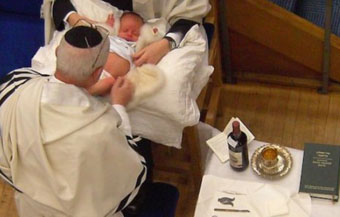 At least one hospital in Switzerland and two provinces in Austria have suspended circumcisions pending legal clarification on the matter, it has been announced.
At least one hospital in Switzerland and two provinces in Austria have suspended circumcisions pending legal clarification on the matter, it has been announced.
The governor of Vorarlberg province in Austria has told hospitals in his region to suspend circumcisions motivated by religious custom, citing a German regional court ruling that the practice amounted to causing criminal bodily harm.
Markus Wallner says he sees the German decision last month, arising from the case of a child whose circumcision led to medical complications, as “precedence-setting judgment.”
He told provincial hospitals Tuesday not to perform the procedure except for health reasons until the legal situation is clarified in Austria.
The decision does not affect religiously motivated circumcisions performed outside hospitals run by the Vorarlberg government.
A Zurich hospital took a similar decision. “Of course we in Switzerlandaren’t directly affected by the Cologne ruling, but it sparked a debate about how to deal with the medical and ethical issues involved,” said Marco Stuecheli, a spokesman for Zurich’s Children’s Hospital.
A group of Orthodox rabbis in Wednesday issued a warning against further restrictions in Europe of the ancient Jewish practice.
Last month’s verdict by a regional court in Cologne didn’t ban circumcision. But it prompted angry protests from Jewish and Muslims groups, especially after the German Medical Association advised doctors not to perform unnecessary circumcisions until the legal situation is clarified – something Germany’s government has pledged to do soon.
“Our fears that the court ruling in Cologne could have a knock-on effect across Europe are now being realized,” said Pinchas Goldschmidt, the president of the Conference of European Rabbis.
He said Jewish leaders across the continent would seek out lawmakers and government officials to impress on them how central the practice is to their faith, and to forestall further restrictions elsewhere.
While Muslims, too, commonly circumcise their sons at a young age, in Judaism the procedure must take place eight days after birth. According to religious law, an uncircumcised male isn’t considered fully part of the Jewish community, Goldschmidt said.
“In order to change that we would have to convene a supreme Jewish religious court, which has not convened for the last 2,000 years,” he told The Associated Press.



